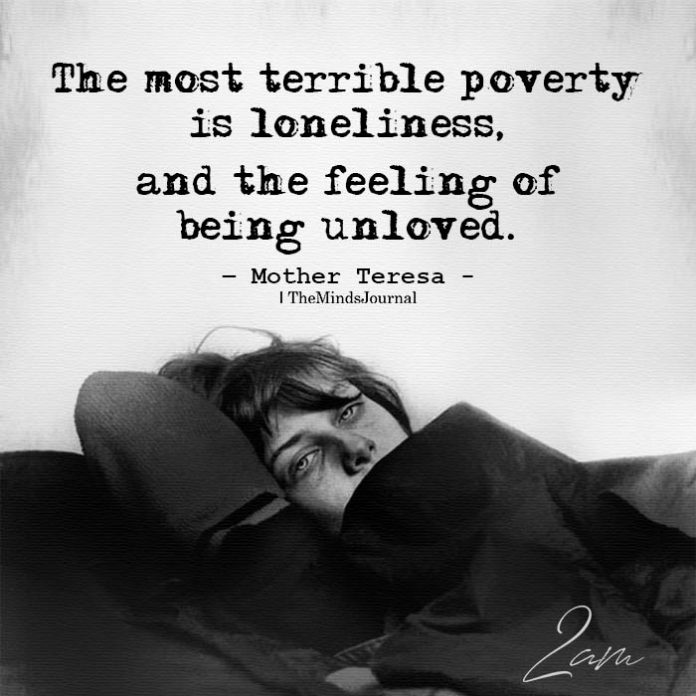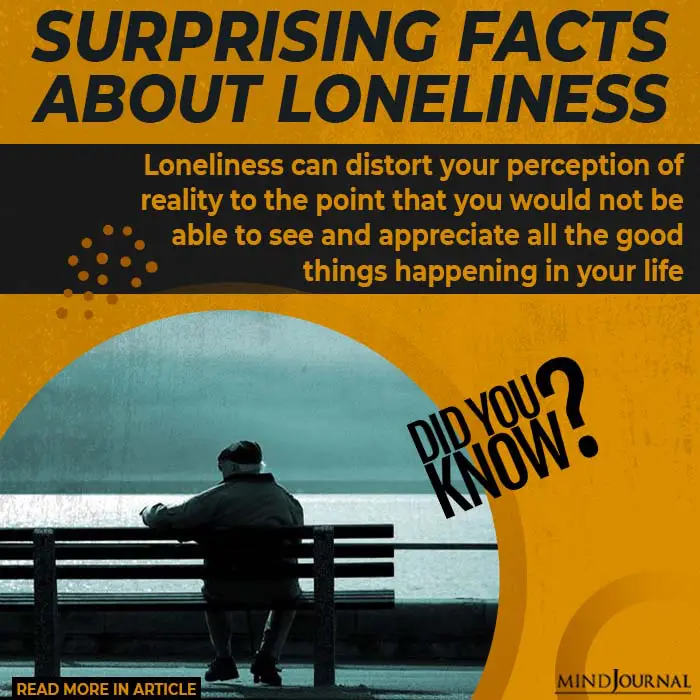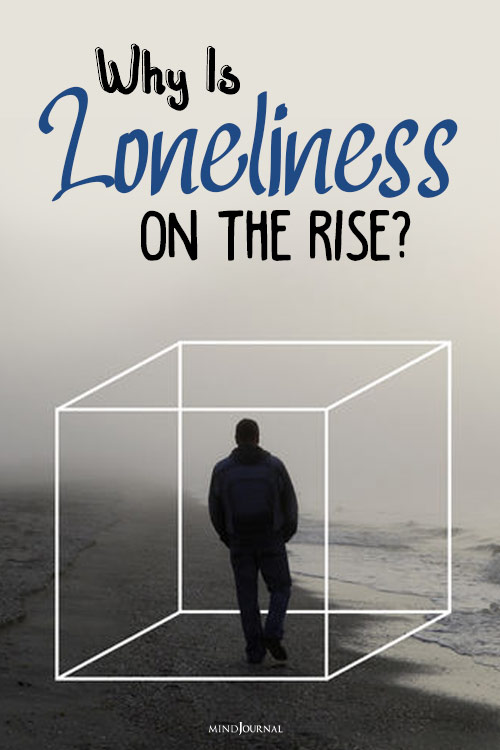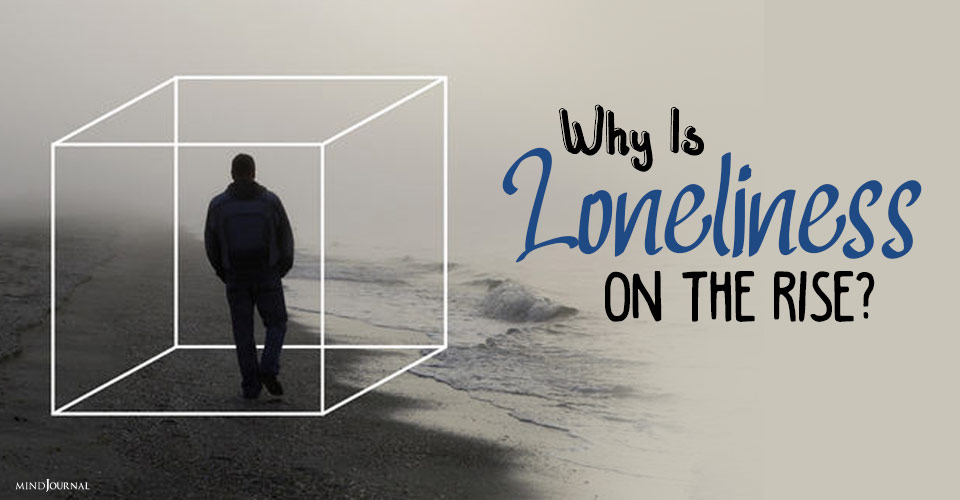Loneliness is a common feeling that we all experience at some point in our lives. It can often be caused by our isolation from other people. However, as the number of cases are growing and loneliness is becoming recognized as a major public health issue. Learn why is loneliness on the rise as well as the psychology behind it.
30 percent of millennials feel lonely most of the time.
KEY POINTS
- Research suggests that loneliness is on the rise in many parts of the world.
- Loneliness is best conceived as an unmet social need, which humans are fundamentally driven to correct through relationships.
- Business opportunities are opened when this social need is not met through organic interactions and friendships.
Why Is Loneliness on the Rise?
Each year, there’s that one must-have holiday gift. In 2007, it was the iPhone. In 1984, it was the first Air Jordans. In 1975? A rock. That’s right. 1975 was the year of the pet rock. Accessibly priced at $4 each, the rocks came in a cardboard box shaped like a cage, with cutouts to allow for air.

These were, of course, completely ordinary rocks that could be plucked from anyone’s backyard. But pet rocks flew off the shelves. In 1975, over 1.5 million rocks were sold, which made their “inventor,” Gary Dahl, a millionaire almost overnight.
The Pet Rock was a quirky fad that faded out in less than a year. But the fascination with it holds a deeper truth about human nature: We effortlessly assign animacy and human-like characteristics to clearly inanimate things. At the level of facts and information, we know it’s a rock. But when we look at it, we can’t help to feel that it’s more than that. It has a mind of its own with thoughts, feelings, and emotions just like we do.
The key to the pet rock’s success may have been the way it ingeniously tapped into this tendency. Each rock came with a 30-page, tongue-in-cheek manual for its care. This included gems such as, “If, when you remove the rock from its box it appears to be excited, place it on some old newspapers. The rock will know what the paper is for and will require no further instruction. It will remain on the paper until you remove it.” We’re so primed to apply animate characteristics to things, that these were all the hints we needed.
Related Loneliness In Children: This Is What You Can Do As A Parent
In 1975, the pet rock was a fun fad but today they could be taken to mean something else entirely: a cure for loneliness. More and more often, we humans are turning to inanimate objects to fill our unmet social needs. If we can so easily see a rock as “human-like,” just wait for what artificially intelligent algorithms and anthropomorphic robotics can do. As we’ll see, modern technology is galvanizing the loneliness economy.
Wherever we look there’s money to be made from loneliness. It’s a booming business. But how does loneliness “work”? And what kind of market opportunities does it present? To understand how loneliness influences consumer behavior, we first have to understand a bit about social psychology.
The Psychology of Loneliness and Why It’s On The Rise

Humans are deeply social creatures. Our ability to collaborate may be the hallmark of the human species. We can’t run the fastest, fight the most ferociously, or see the farthest. But, at our best, we can work together better than any other species.
This means that “feeling social” isn’t just a mood for happy hours and weekends. It’s always with us; one of our key drives, just like thirst and hunger. We have a natural predilection towards being in the presence of others and are typically much more content when others are around. And just like hunger and thirst, we feel something is missing when our social needs aren’t met. When we go through periods of isolation, as many have had during COVID lockdowns, we experience a feeling of withdrawal.
We feel hungry when we’re deprived of food, and thirsty when we’re deprived of liquids. The feeling of loneliness is akin to the body telling us we’re deprived of social connection. Loneliness isn’t just a bummer. It’s also bad for us. Similar to food and water, when these signals go unheeded, there can be deleterious health effects.
Julianne Holt-Lunstad, Ph.D., professor of psychology at Brigham Young University, recently authored a large-scale meta-analysis on social isolation and loneliness, consisting of over 200 studies and 3.7 million participants.
Her research suggests that prolonged periods of loneliness and isolation can have serious adverse effects, including heart disease, stroke, depression, and premature death. As she describes, “There is robust evidence that social isolation and loneliness significantly increase the risk for premature mortality, and the magnitude of the risk exceeds that of many leading health indicators. Indeed, many nations around the world now suggest we are facing a ‘loneliness epidemic.’”
Related: The 3 Factors to Overcome Loneliness According To Studies
If loneliness is on the rise, it’s tempting to think that this is merely the result of lockdown measures during the pandemic. But Holt-Lunstad’s research shows that these loneliness trends predate COVID-19.
In the United States, loneliness has been on the rise since 2015, especially among younger demographics. YouGov reports that roughly 30 percent of American millennials report feeling lonely all or most of the time.1 Similar numbers have been found in Asia, and in Western Europe. In Germany, 70 percent believe loneliness to be a serious problem.
The U.K. has been noted to be especially lonesome. Over half of U.K. employees report feeling lonely at work, and at home, nearly 75 percent describe their neighbors as “strangers.”2 In 2016, 1 in 10 Brits reported that they did not have a single friend to rely upon. In 2020, that shot up to 1 in 8. Indeed, the issue has reached something of a political breaking point. In 2018, the prime minister went so far as to appoint a Minister for Loneliness.
This trend is having a major impact on human relationships. But what are the economic implications of the rise in loneliness? As we’ll see, when loneliness enters the picture, a pet rock can take on much greater significance
This is a multi-part series on the psychology and business of loneliness. In the next piece, we’ll explore the new business developments which have resulted from these recent trends. Stay Tuned.
This post also appeared on the consumer behavior blog PopNeuro.
Related: Why Am I So Lonely? What Is Loneliness And How Can We Cope With It
Dealing with social isolation during a pandemic can be terrifying, leading to nervous thoughts and despair. You can overcome these negative feelings of loneliness by evaluating how you use your free time or reconnecting with others. Drop a comment and let us know your thoughts.
References
Ballard, J. (2019) Millennials are the loneliest generation, YouGov America
Elsworthy, E. (2018) “More than Half of Britons Describe Their Neighbours as ‘Strangers,’ ” The Independent, 29 May 2018,
Epley, N., A. Waytz, and J. T. Cacioppo, “On Seeing Human: A Three-Factor Theory of Anthropomorphism,” Psychological Review 114 (2007): 864–86. 7.
Holt-Lunstad, J. (2017). The potential public health relevance of social isolation and loneliness: Prevalence, epidemiology, and risk factors. Public Policy & Aging Report, 27(4), 127-130.
Nass, C., & Moon, Y. (2000). Machines and mindlessness: Social responses to computers. Journal of Social Issues, 56(1), 81–103.
“Loneliness and the Workplace: 2020 U.S. Report,” Cigna, January 2020
Topping, A. (2014) “One in 10 Do Not Have a Close Friend and Even More Feel Unloved, Survey Finds,” The Guardian
Wegner, D. M.; Gray, K. (2016) The Mind Club. Penguin Publishing Group. Kindle Edition.
Why is loneliness increasing?
According to a new research the pandemic or unmet social needs can be triggering a loneliness epidemic, which is on the rise in many parts of the world especially among old people, teens or young adults
What are the health effects of loneliness?
Research suggests that prolonged periods of loneliness and isolation can have serious adverse effects, including heart disease, stroke, depression, and premature death in some cases.
Written by: Matt Johnson Ph.D. Originally appeared on: Psychology Today Republished with permission









Leave a Reply
You must be logged in to post a comment.